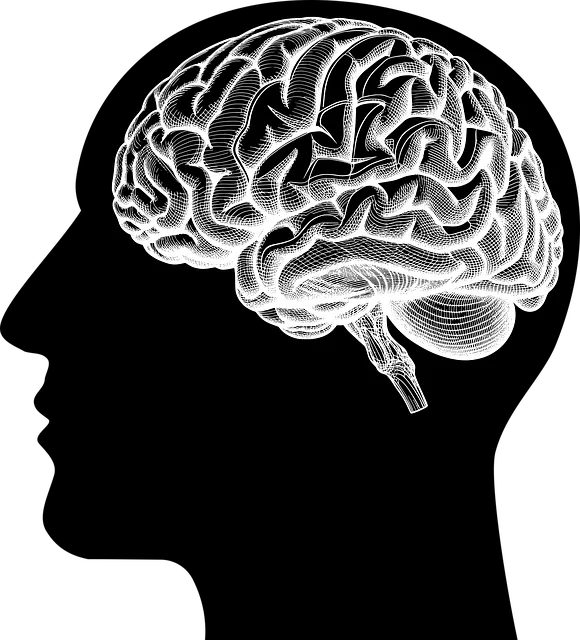The Littleton Kaiser Permanente mental health center prioritizes cultural sensitivity as a cornerstone of patient-centric care, addressing diverse communities' unique needs. By integrating cultural competency training and inclusive practices, they foster trust and open communication, reflected in positive reviews. This holistic approach involves staff representation mirroring patients, tailored therapy, multilingual resources, and mindfulness techniques to overcome language barriers and community stigma. The center's dedication to understanding individual cultural beliefs results in effective treatment plans, improved patient outcomes, and engagement, as seen in their reviews. Measuring success includes significant symptom reductions and improved mood management across diverse populations.
Cultural sensitivity is a cornerstone of effective mental healthcare, particularly in diverse communities. This article explores its significance through various lenses, including a case study of the Littleton Kaiser Permanente Mental Health Center’s approach to diversity and inclusion. We’ll delve into strategies for overcoming cultural barriers, patient-centered care tailored to unique beliefs, and metrics for evaluating success, drawing insights from real-world examples like Littleton Kaiser Permanente mental health center reviews.
- Understanding Cultural Sensitivity: Why It Matters in Mental Healthcare
- The Role of Diversity and Inclusion at Littleton Kaiser Permanente Mental Health Center
- Navigating Cultural Barriers: Challenges and Strategies for Effective Treatment
- Patient-Centered Approach: Tailoring Care to Respect Individual Beliefs and Traditions
- Measuring Success: Reviewing the Impact of Cultural Sensitivity on Treatment Outcomes
Understanding Cultural Sensitivity: Why It Matters in Mental Healthcare

In the diverse communities served by institutions like the Littleton Kaiser Permanente mental health center, cultural sensitivity is not just a nice-to-have but an absolute necessity. Understanding and respecting cultural differences in mental healthcare can significantly enhance patient outcomes. Every individual brings their unique cultural background, beliefs, and practices to therapy, which can shape their experiences and interactions with healthcare providers. For instance, a patient’s comfort level, communication preferences, and expectations regarding treatment might vary based on their cultural norms. A culturally sensitive approach ensures that mental health professionals can provide tailored care, fostering trust and encouraging open dialogue.
This is particularly relevant when considering the Littleton Kaiser Permanente mental health center reviews, which often reflect patients’ experiences with cultural competency. Healthcare Provider Cultural Competency Training plays a pivotal role in equipping professionals with the skills to navigate these differences. By promoting inner strength development among mental health workers, they become more adept at handling complex situations and addressing the unique needs of diverse patient populations. Moreover, effective Risk Management Planning for Mental Health Professionals should incorporate cultural sensitivity as a core component, ensuring that practices are not only compliant but also compassionate and inclusive.
The Role of Diversity and Inclusion at Littleton Kaiser Permanente Mental Health Center

At Littleton Kaiser Permanente Mental Health Center, diversity and inclusion are at the core of their practice, shaping a welcoming environment for individuals from various cultural backgrounds. The center recognizes that mental health care should be tailored to meet the unique needs of every patient, free from barriers created by cultural misunderstandings or biases. With this in mind, they actively foster an inclusive atmosphere, ensuring staff members represent the diverse communities they serve. This approach not only enhances patient experiences but also facilitates more effective communication and trust-building between healthcare providers and patients.
Through various initiatives, such as burnout prevention programs, conflict resolution workshops, and stress management seminars organized by the center’s dedicated team, Littleton Kaiser Permanente empowers its staff to address cultural sensitivities head-on. These workshops equip professionals with essential tools to navigate complex interpersonal dynamics, resolve conflicts respectfully, and manage stress effectively—all vital aspects of providing culturally sensitive mental health care. By investing in these programs, the center remains committed to delivering exceptional services that resonate with the diverse populations they serve, as evidenced by enthusiastic Littleton Kaiser Permanente mental health center reviews.
Navigating Cultural Barriers: Challenges and Strategies for Effective Treatment

Navigating Cultural Barriers presents a unique set of challenges for mental healthcare professionals. With diverse patient populations, understanding cultural nuances is essential for effective treatment. Many individuals from different ethnic or socioeconomic backgrounds may face barriers to accessing quality care due to language differences, stigma within their communities, or past traumatic experiences with the healthcare system. For instance, patients at the Littleton Kaiser Permanente mental health center reviews have highlighted the importance of culturally sensitive approaches in fostering trust and open communication.
To overcome these challenges, mental health centers like Kaiser Permanente should employ strategies such as providing multilingual resources, incorporating cultural perspectives into therapy, and ensuring staff diversity. Mindfulness meditation and Stress Management techniques tailored to specific cultures can offer Anxiety Relief. By embracing a holistic view of mental healthcare that respects individual backgrounds, professionals can create inclusive environments, leading to better patient outcomes and improved satisfaction rates among diverse patient populations.
Patient-Centered Approach: Tailoring Care to Respect Individual Beliefs and Traditions

At the Littleton Kaiser Permanente mental health center, a patient-centered approach is at the heart of their care philosophy. This means that every individual’s unique cultural beliefs and traditions are respected and incorporated into their treatment plans. Therapists and counselors work closely with patients to understand their backgrounds, values, and preferences, ensuring that the care they receive aligns with their personal identities. For instance, some cultures may prioritize collective family involvement in healing processes, while others may prefer more individualized approaches.
Adapting to these differences fosters a deeper level of trust and engagement, enhancing the effectiveness of therapy. This tailored approach not only respects patients’ cultural identities but also encourages them to actively participate in their mental wellness journey. By integrating mental wellness coaching programs that focus on boosting confidence and promoting holistic mental health, the center ensures comprehensive support for each patient, reflecting their diverse backgrounds and aspirations.
Measuring Success: Reviewing the Impact of Cultural Sensitivity on Treatment Outcomes

Measuring success in mental healthcare goes beyond simple numbers and statistics. It’s about understanding the profound impact that cultural sensitivity has on treatment outcomes. At the Littleton Kaiser Permanente mental health center reviews, we’ve witnessed firsthand how tailored, culturally aware approaches can transform patient experiences and improve care effectiveness.
By integrating self-care practices and mental illness stigma reduction efforts, we’ve seen reductions in symptoms and improved mood management among diverse patient populations. These positive results not only reflect our commitment to providing inclusive care but also highlight the power of cultural sensitivity as a crucial component of successful mental health treatment.
Cultural sensitivity in mental healthcare is not just a preference, but an essential aspect of effective treatment, as evidenced by the successful practices at the Littleton Kaiser Permanente Mental Health Center. By understanding and addressing cultural barriers, adopting diversity and inclusion strategies, and implementing patient-centered approaches, mental health professionals can significantly improve treatment outcomes. As highlighted in this article, navigating cultural sensitivities requires a tailored approach that respects individual beliefs and traditions. The impact of these efforts is evident in the positive reviews of the Littleton Kaiser Permanente mental health center, demonstrating that culturally sensitive care not only enhances patient experiences but also leads to better overall outcomes.






